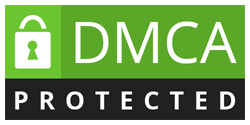Writing a Brilliant Critical Book review

Writing a Brilliant Critical Book review: How to Prepare
Writing a critical book review more than just giving a book summary. It is an opportunity to propose an in-depth discussion about a book. As a critic, your job is to combine the analytical and accurate reading of the book with the reaction it causes in you. In order to make a good criticism, you will have to describe what the reader will find on the pages of the work in question, analyze how it tries to fulfill its proposal, and substantiate its point of view with good arguments and opinions. Our experts have prepared this article to help you in your book review writing preparation.
Preparing to write the critical book review
- Read the book and make notes.
If possible, reread it several times. Every time he revisits the plot, the setting, and the characters, the critic has a new opportunity to perceive unpublished elements or to see from a new point of view the elements that were already familiar to him.
As you read the book, document your impressions in writing or on voice recordings. Don’t worry about organization and perfection at this point. The idea is just to record how you react to the text.
- Take into account the genre or field of research of the book.
Ask yourself if the content is suitable for that genre or field of research. If you do not know these categories thoroughly, consult other sources to understand them better.
For example: if you are analyzing a non-fiction work on the development of the polio vaccine in the 50s, consult other scientific works that address this theme and time. If the criticism is of a fictional book, compare it to other fiction books set in the same period
- Identify the main themes of the book.
The themes are generally teachings or messages that the work shows. In addition, they can be the fundamental and universal ideas explored in the work. Some authors, mainly those of fiction, present several themes in the same book.
Pay close attention to the preface and the quotes and references present in the introduction, as all of this can illuminate the themes that the author wants to represent and the point of view that he intends to take.
A great way to identify an important topic in a book is to summarize it in one word. For example, one of the main themes of George Orwell’s Animal Farm is corruption. Now that you have identified that keyword, try to use it as a basis for getting to the message or lesson that the book tries to convey – in this case, “sin can bring knowledge, but it also brings suffering”.
- Take into account the author’s style.
Try to find out if the style is appropriate for the target audience of the book. Remember that genre and literary style are two different things: the first is the classification of the work; the second, the way in which the author expresses and represents the subjects of the book. Therefore, the author can present the same theme from different points of view.
- Think about how the author develops the most important aspects and elements of the book.
Of the themes that he presented initially, which ones did he decide to elaborate on? And which ones did he leave out? And why? Looking for loopholes in the plot or arc drawn by the characters will help you think about these issues in a more critical way. On the other hand, detecting the elements that the author has successfully developed will help you to identify the qualities of the book.
- Make notes about the format of the book, if relevant.
Diagramming, binding, typography, etc. can give you some hints about the context of a book. If the text is accompanied by supporting material (maps, tables, illustrations), try to understand how this contributes to the themes portrayed in it.
- Analyze the literary elements of the book.
If you are working with a work of fiction, try to understand how the structure of the plot presents the story. Make notes about the characters, the plot, the setting, the tone, symbols, and how these elements are related to the theme of the book.
- Think about how unique the book is.
Does it bring anything new to the literary genre? Does the author attempt to challenge or expand the genre’s conventions and norms? Find out how the book does this and how it could affect public reception.
- Consider the degree of success of the work.
Was the author able to fulfill the objective he proposed? Is the book’s conclusion satisfactory? Would you recommend it to others?
Conclusion
With the above universal tips, you will be very ready to start writing your critical book review. Our next blog will provide you with the ultimate guide on how to write down your critical book review. Besides, if you need help in a critical book review writing assignments, we have professional writers who can help you craft an excellent custom Book Review. CLICK HERE to ask for help.




